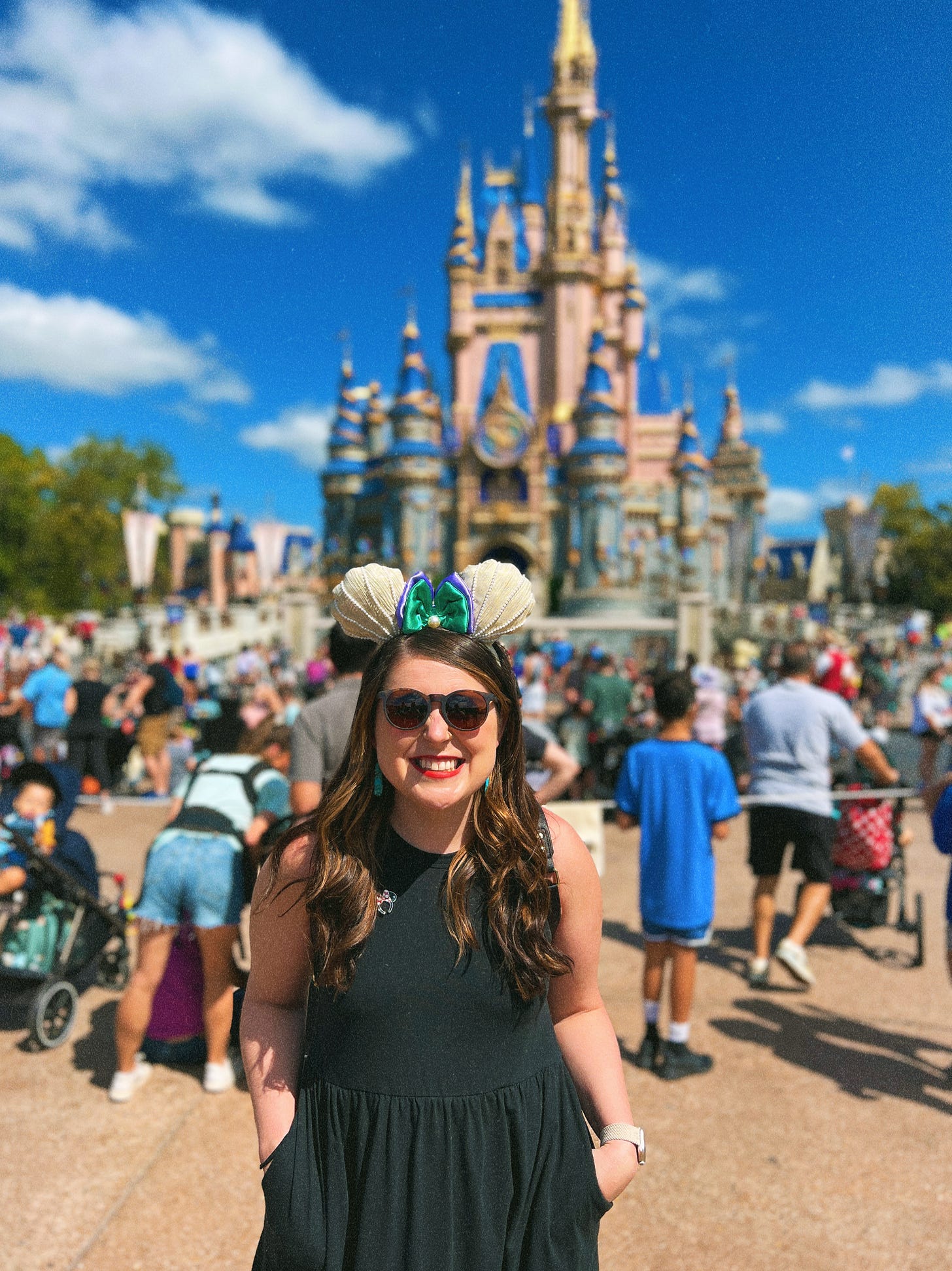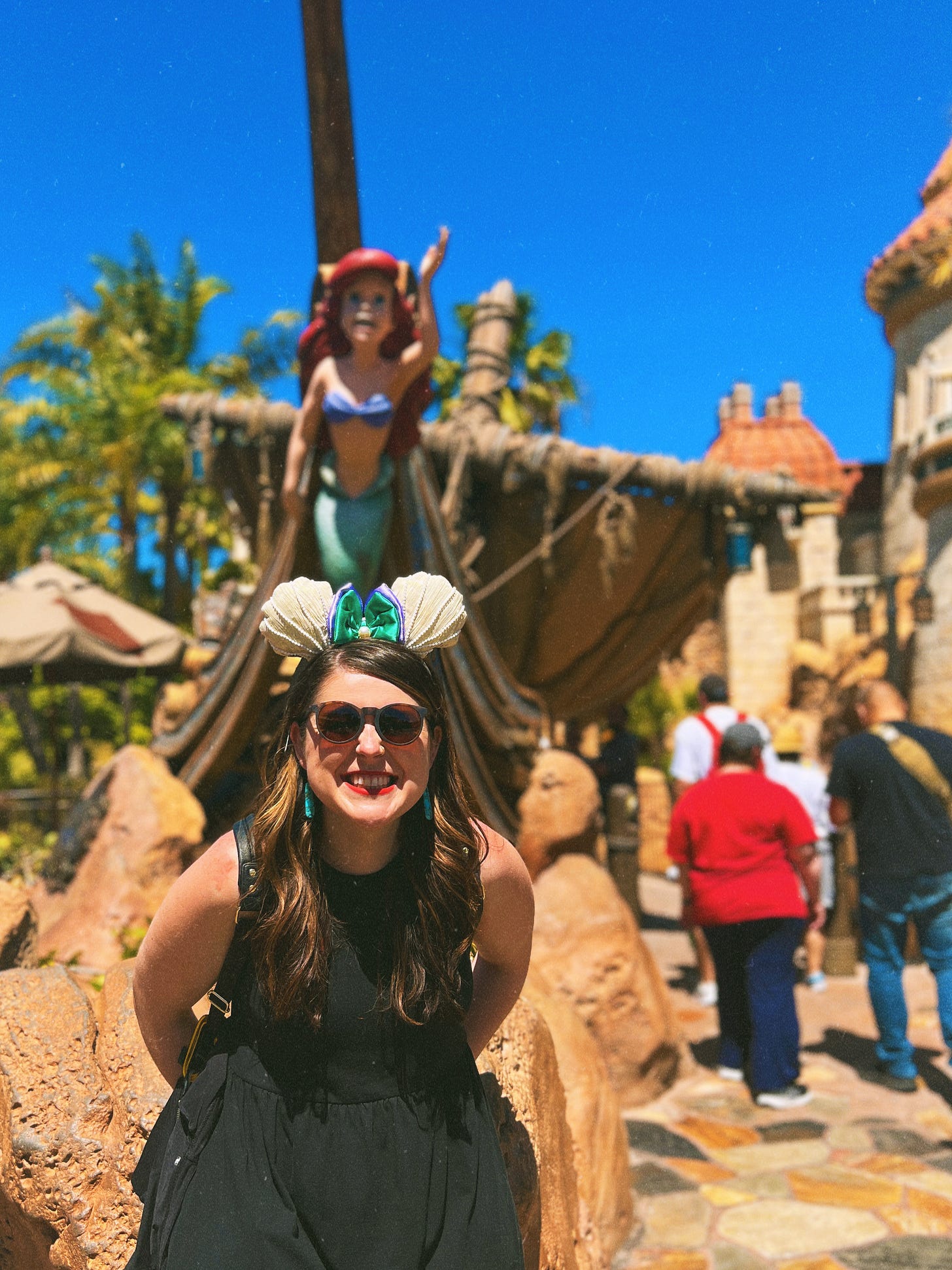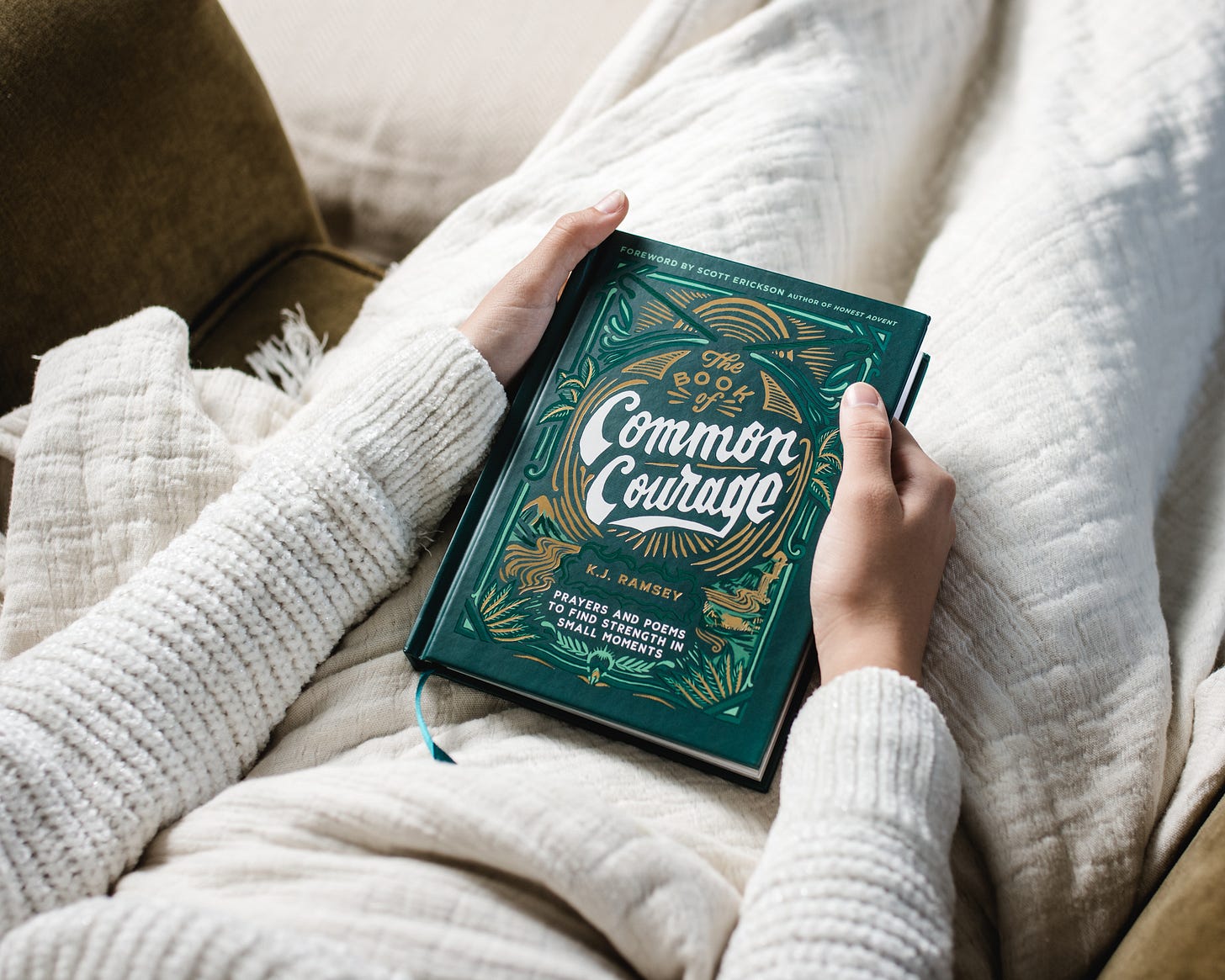Let the little children come
on healing from complex childhood trauma one Mouse Ear at a time
You can listen to me narrating this post above. Fair warning—the audio’s not great quality this time, but it’s better than nothing!
CW: In this piece, I allude to my own childhood abuse and not feeling safe in my own home. While I don’t include many details, know that you have permission to pass by this piece if that sounds like too much for you today. Read gently.
Trauma truncates our trust.
It writes a story of scarcity on the pages of our nervous systems. It traps us in a past where we couldn’t protect ourselves. It tells us to keep trying harder to make sure harm never happens again. And, most vicious of all, it blocks our bodies from being present right here and now to what is good and true and beautiful.
This week I was reading Luke 18, where Jesus tells his friends not to block the children from coming to him to be blessed. He says that unless we receive the kingdom of God like little children, we won’t ever enter it. (Luke 18:17)
After I read Jesus’ words, I smiled and sank into the couch, pulling up this picture on my phone from vacation last month.
We were at Disney World with my parents and sister, and after days of almost buying a pair of Little Mermaid Mouse Ears and then putting them back because WHO SPENDS $35 DOLLARS ON SOMETHING SO SILLY, I finally gave in to the little girl inside me who watched The Little Mermaid so much she thought Ariel was her real friend. On our last day at Disney World, I strolled around the Magic Kingdom with my Very Extra Ariel Mouse Ears beside my husband wearing a pink Flounder button down, and let me tell you, I haven’t had so much fun in ages.
There was this moment on vacation where my dad looked at me and said, “It’s so weird—how you love Disney so much as an adult but wanted nothing to do with it as a kid.”
I asked him, “When did I stop loving it?”
He said, “Probably when you were around ten or eleven.”
I sighed in immediate recognition, tears filling my eyes. An image of the basement of my childhood home colored my mind, on the day I came home from school to find my brother was gone. While I sat up straight in a desk trying to spell perfectly and get my times tables right, two security guards came and wrestled my older brother into a car to drive him to a military school in Missouri. My parents sat me down on the green leather couch in the basement, explaining that to keep Marco out of trouble, he needed to live at military school now.
I was flooded with confusion. And shame. My brother was gone, and I felt relief. He couldn’t chase me with a BB-gun or hold my face down in the snow anymore. He couldn’t call me “Piggy” or “fat” or throw my books on the ground. And worse. So much of my childhood was a cruel game of tag where I was always “it.” I was trapped in a game I didn’t want to play. And suddenly, the game was over.
Shame stung at my cheeks. The instant relief inside me felt like a betrayal. How could I love my brother and be glad he was exiled from our family? Why was he so bad while I was so good? Why did God let his heart be so hard while mine was too soft?
It wasn’t until I was in graduate school training to be a therapist that I realized just how desperate my parents were to protect the rest of us kids from being physically harmed. Three things remain true at once: 1) For me, that protection came too late. 2) My parents made an impossibly hard choice to love us all as best as they could. 3) The therapist I now am knows that seeing a member of my family be sent away was an attachment wound of abandonment from which I am still recovering.
The complexity of experiencing love in the context of harm confuses us on a cellular level.
To feel both soothed and threatened by those who are supposed to be our consistent safe place creates a storm of shame in the nervous system.
I grew up lifting the weight of tension in my family into an inner muscle of self-protective seriousness. I was a little adult—too mature too quickly. I found safety in seriousness. Play was where I wasn’t protected; so, far before my brother was sent away, I sought more predictability. I hid inside the pages of books, preferring to play inside the safety of my soul rather than the unpredictable outside world.
So, it’s no shock that at the same age I was spiraling in an existential crisis of adult proportions, I stopped loving Disney World. Play couldn’t be trusted. I judged it instead. I was, admittedly, a weird loner of a kid, but the fact that an eleven year old walked around Disney with a book under her nose grumbling about how “capitalistic” it all was maybe should have been our sign that I wasn’t exactly okay.
In the absence of clarity, with little modeling of self-compassion, critique gave me safety.
Seriousness became my spirituality. And though my brother was the one who was exiled to military school, the child inside me was exiled too.
Healing from complex childhood trauma as an adult looks like holding compassion for the child who grew up too quickly.
Becoming whole today looks like inviting the exiled younger parts of ourselves back out from the corners where they’ve long been hiding to stay safe.
The child inside us needs consistent kindness to trust that we are safe enough companions for them to come back out from the corners. Our bodies need to see—over the test of time—that we won’t bully them for reminding us how broken-hearted we still are for ourselves and our families.
And as we befriend our bodies—as we remember, respect, and retrieve the scared and precious child within us—trauma no longer gets to shout the story that goodness can’t be trusted.
We can walk under blue skies in the Magic Kingdom with mouse ears on our heads, grinning at the goodness we thought was lost but now is found.
“People brought babies to Jesus, hoping he might touch them. When the disciples saw it, they shooed them off. Jesus called them back. ‘Let these children alone. Don’t get between them and me. These children are the kingdom’s pride and joy. Mark this: Unless you accept God’s kingdom in the simplicity of a child, you’ll never get in.’”
Luke 18:15-17 MSG
Don’t get between your inner child and Christ. The child inside you is the kingdom’s pride and joy. Mark this: unless you welcome God’s kingdom as kid, you won’t get in at all.
A Healing Prompt:
Recall your favorite Disney movie as a kid. Think about why you loved it so much. Maybe ask yourself, “When did I stop loving this?” [If you did.] Write a note to your younger self, reveling in what they loved and inviting them back to play again today. Reassure them that you promise to be a safe friend to them always.
Notice what your body tries to tell you in return. Allow yourself to fully take the shape of whatever sadness, anger, or joy arises. Maybe you’ll curl into a ball. You might want to scream into a pillow. Or maybe you need to belt out “Part of Your World” like I did today… The important thing is that you give your body permission to speak. This is the way we become whole.
A Healing Prayer:
I recently had the honor of writing the foreword to my friend Lyndsey Medford’s first book, My Body and Other Crumbling Empires: Lessons for Healing in a World that Is Sick. Her book is fierce and kind, the exact kind of storytelling that embraces our full, tender selves in a society that says we should be stronger. I invited Lyndsey to share a prayer with us in the spirit of her book, and I must say, it’s so on point for today’s post:
God of the Wild Things,
Who crafted each of us with the care and artistry imbued in the trees,
Re-tune our hearts to hear the music of our bodies with the same wonder we bring to the forest's songs.
In our systems' intricacies, show us that our majesty matches mountains'.
In our limbs' cries of pain, teach us to hear echoes of Creation's groans.
In each moment our bodies courageously reject the status quo, let us bear witness also to Earth's wisdom whispering beyond empire's noise.
And in loss and lack, may we not neglect to look down, to the beauty and necessity of every ecosystem's dead and decaying things,
That the cacophony of disconnection may never resound in our hearts more insistently than the neverending symphony of your glory and love,
O Creator, who dances with our incarnate Redeemer and the Holy Spirit our Sustainer, now and forever.
Amen.
A Healing Place:
This month I have the joy of being part of the Broken to Beloved Virtual Summit on healing from religious trauma. It’s a free event and includes some truly wise and lovely folks, like my husband Ryan, dear friend Suzanne Stabile, friend Mike Brown (who was part of bearing witness to our pain in the middle of us realizing we needed to leave our spiritually abusive church!), my in-real-life friend and fellow trauma therapist Kendra Hill, and soooo many others.
The Broken to Beloved Virtual Summit begins April 19th at 8am ET and you can register for free (!) here.
There are tons of sessions, so you might want to pace yourself. You can purchase an all-access pass to watch the sessions at your own pace and as many times as you want here.
P.S. So many of the prayers and poems I wrote in The Book of Common Courage are aimed at welcoming the exiled parts of ourselves back home into safety. Get a copy or gift a copy today.
I so hope it can be a compassionate companion as you practice showing your body you are a trustworthy friend.
Sending you love as you enter the sacred sorrow of Friday and darkness of Saturday. May these days honor the sorrow in your story, even as we enter the expectation of what Easter holds for our futures.







Beautiful KJ. As I lay here listening and reading along I just journaled I am afraid of this body. These words and your journey show me to know this body is still good and whatever is ahead I will know I am enough and beloved.. I will find my way of accepting this body and know that it is enough🙏
I loved this! And that photo of you is priceless! I've found Disneyland to be a way of tapping into some lost playfulness as well!